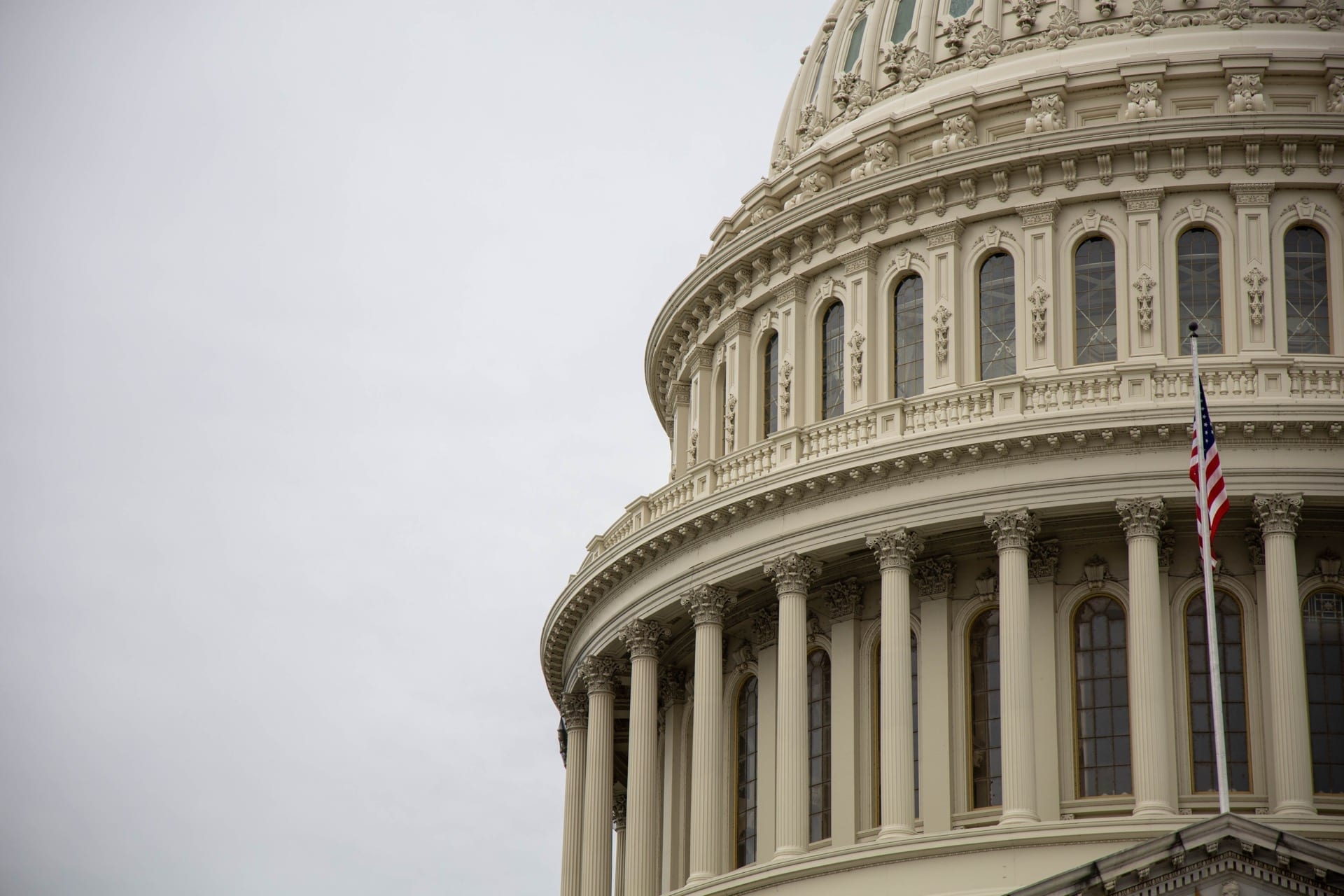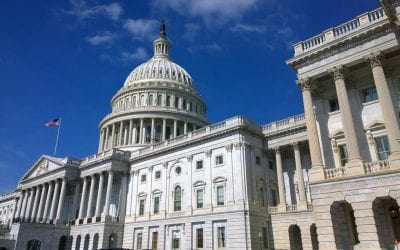Democracy Corps’ first wave of focus groups since the historic election of 2006 suggests that Democrats have several opportunities to solidify their gains with swing voters, and expand their support as they define themselves in the new Congress. These focus groups were conducted the day before and the day after President Bush’s national address on the Iraq war, and were heavily devoted to understanding attitudes about the war and reaction to the President’s initiative. We also explored voters’ takeaways from the 2006 election and their priorities for the new Congress.
As the country faces great challenges and Americans want to see real change take effect, these focus groups indicated that skepticism toward all things political remains. But they are watching Democrats with a hopeful eye to see if they can make a difference as the majority in Congress.1
IRAQ – CHANGE THE COURSE, BRING HOME THE TROOPS
While the Columbus focus groups were conducted before Bush’s speech and the Ft. Lauderdale groups after the speech, attitudes toward the war and President Bush’s policy were consistent in both locations – firmly at odds with Bush’s path. In the past, most of our focus group participants had been frustrated with the war, torn over their concerns about terrorism and the losing images they see each day on television or in the newspaper. But a growing number of voters in these groups, in fact nearly all the women, expressed downright anger about the war. With the exception of a handful of hard core Bush supporters, people wanted to start bringing home the troops and let Iraq start taking care of itself. For the first time, we witnessed numerous voters questioning Bush’s motives as he announced new plans for increasing troop levels, with many people saying he was simply trying to “save face” while neglecting the interests of our soldiers and the country. Even among those who still stood behind Bush, there was no enthusiasm for his plan or confidence that increased troop levels would make much of a difference. For them, the consequence of America leaving and becoming an international laughingstock was the prime concern.
A lack of confidence in the Iraqi government goes to the core of the doubts these voters had about America’s role in Iraq. They made their belief clear that nothing will change as long as we are in Iraq and no matter what the United States does at this point, the situation will be awful whenever we leave. This drove people’s conclusion that it does not matter if we send more troops or not, and they questioned the utility of sending additional troops into danger. As one participant put it, “what happens next when 20,000 doesn’t do the job?” Overwhelmingly positive responses to video we showed of Senator Durbin’s remarks that followed President Bush’s speech reflected the mindset of these voters who thought the Senator delivered a “terrific speech” and was “absolutely right” in his assessment that America had done a great deal for Iraq and it was now time to begin an orderly redeployment.
The other powerful dynamic driving these voters’ thinking was their sense that President Bush’s plans failed to offer a new strategy. Even after we showed participants excerpts of Bush’s speech, they felt he was just providing more of the same. They went into the speech deeply troubled by the war and the President’s current course, and they came out of the speech completely unconvinced that this was a new way forward, let alone a path that would lead to real success. It was also notable that not one of the participants – despite being highly informed seniors or college educated women – had bothered to watch the speech when it aired. They simply had little desire to watch the President give his standard assessment and war speech. After following the day’s news, their dominant takeaway from the coverage of the speech was that Bush was simply proposing a troop increase of over 20,000 soldiers.
When informed about the various political benchmarks that the President was setting for the Iraqi government, participants questioned the connection between sending more troops to achieve political progress. They highlighted that if the problem is political and the sectarian challenges in establishing a democratic government, then we should be focused on providing appropriate political – not military – tools. One participant in the non-college educated groups captured the sentiment when she said, “instead of sending more soldiers, we should be sending former politicians to train the Iraqi politicians.”
Participants’ feelings about what Congress should do varied in degree and intensity. Some participants hoped Congress would act aggressively to prevent further troop deployments to Iraq. In fact, several people felt that the Democratic Congress had been elected because of the war, and they were now supposed to give voice to a public that opposed the President’s course. Others were conflicted over what Congress can, and ought, to do. There was confusion over what tools Congress actually had to stop the President’s plan, and deep ambivalence when it came to refusing funding for additional forces. As much as most people did not want to send more troops to the Iraqi frontline, they could not fathom the idea of sending American troops to a warzone without all the resources they need.
THE 2006 ELECTION: CHANGE
People viewed the 2006 election as an unmistakable vote for change. Iraq was certainly at the center of this call for change, but for most participants, the vote was also about something broader. With the country facing major problems on multiple fronts and with a crowd in Washington that was not serving the people who sent them there, people took out their frustration and anger on those who were in charge. They expressed a strong sense that the election was more about Republicans’ failures than Democrats’ vision, and they were now waiting to see what the Democrats would do. Except for some references to the minimum wage, participants struggled to identify any promises that Democrats made in the campaign that they now had to keep, and their expectations of the new Congress were much more general – work together to get things done for the country, help get us out of Iraq, and do something about health care.
The negative advertising that dominated these two battleground areas2 left a bad taste for these swing voters who remain very skeptical about politicians in general and Democrats’ calls for bipartisanship in particular. Aside from some of the attacks on Klein’s lobbying background which received a great deal of attention in Shaw’s advertising, the Ft. Lauderdale voters had very little knowledge of their new Congressman and what he wanted to do in Congress. Given the high profile nature of this race and an extensive media campaign which gave voters plenty of opportunity to get exposed to the challenger, it is reasonable to believe that other Democratic newcomers begin with the same blank slate.
There was undoubtedly greater recognition of Nancy Pelosi who most people knew had become the new Speaker of the House. Participants said it was too early to assess Pelosi, but their first impressions were generally positive with people citing a toughness that was also made less abrasive and more human by her commitment to her family. Among participants who leaned stronger toward the Republicans, there were a few who expressed doubts about her being too much of a liberal who only wants to oppose Bush, though it is important to note that “too liberal on abortion and gay marriage” was not a concern that participants had about the Democrats. When we showed Columbus participants excerpts of Pelosi’s address to the new Congress, people were very impressed. They viewed her as passionate and committed to trying to get things done. Her statement that she accepted the gavel “in partnership and not partisanship” was especially well-received, directly addressing the serious concern that these blue collar swing voters had about Democrats. In the end, there was a strong sense of “let’s hope she does what she says.”
President Bush was also seen as an important factor in the 2006 election. While his role in the election was intricately tied to the war, attitudes toward the President were sour as usual. In fact, nothing has changed in how people view Bush over the last two years. Aside from the standard compliments toward Laura Bush and references to him as a good, moral family man, people had hardly any positive things to say about him – and never a good word about his actual job performance. Views toward Bush are overwhelmingly negative and frequently intense, ranging from criticism of his poor speaking abilities and general intelligence to questioning his honesty and failures on numerous policy areas. Above all, Bush had lost his position with these swing voters as a Commander-in-Chief who should be given the benefit of the doubt, making it very difficult for him to persuade them even when making a major speech on the Iraq war.
THE NEW CONGRESS
People are watching what the Democrats will do, and the new majority has real opportunities to demonstrate what it represents. Will Democrats perpetuate a partisan mess that prevents anything from getting done (cited by all but 5 participants as their top doubt about the new Congress) or will they bring real change to Washington? When presented with Democratic initiatives – a mixture of the 100 hours agenda and other measures – these voters were clear in their biggest aspiration. Energy independence evoked the broadest and most intense reaction. People clearly articulated that becoming independent from foreign oil simply solves so many of our other problems, and we can certainly achieve this goal if we stop catering to powerful corporate forces. Energy issues are being closely followed in the news and on television specials, and as we have seen in the past, people cited Brazil as an example of how a country can use its own resources to become energy independent. People were also given increased CAFE standards – 10 miles per gallon over the next 10 years – as an option, and their explanation of why they chose a more general statement about energy independence was revealing. They said increasing CAFE standards was definitely an important thing to do, but if we are heavily reliant on foreign oil for our cars in 10 years, we will have major problems. The opportunity on energy independence cannot be overstated.
In addition to energy independence, health care was a top priority. With health care costs being the single greatest focus of the mounting pressures these voters faced, people spoke at length about their own experiences and personal anguish over the health care system. This represented nothing new in any of Democracy Corps’ research, but it is striking how people consistently talk with great passion about health care and how little is being done to advance comprehensive changes that would make it more affordable and accessible for Americans.
All the items in the Democrats’ 100 hours agenda were seen as important, and the next strongest after energy independence were requiring Medicare to negotiate drug prices and implementation of the 9/11 commission recommendations. Not surprisingly, the seniors’ participants were the most passionate about Medicare negotiating drug prices. They did not like the way Medicare Part D is working, with increasingly more people talking about the donut hole as a growing number of people fall into it. These voters clearly identified the pharmaceutical companies as a major culprit in the program’s shortcomings, noting their influence in writing the law and complaining about the big profits at the expense of affordability for those who need it while questioning the long patent protections that keep generics off the market.
It is important to note that despite these participants paying attention to current events and political news, nobody had heard about the passage of the 9/11 commission recommendations in the House (which had taken place before the Columbus groups). In fact, very little of the 100 hours agenda and achievements had yet broken through with the exception of a sense among some that the increased minimum wage had passed. Iraq was clearly dominating the news in the period leading up to these focus groups, and Democrats were seen positively for their stance on the war – but it will require a great deal of work to elevate attention to Democratic accomplishments on the domestic agenda. People are open to it and like the initiatives – they just have trouble competing with the intense passions about the war.
As Democrats work hard to promote the 100 hours agenda, it is important to remember that voters are looking for powerful and concrete examples of change. Given voter disgust for politicians and the way things work in Washington, it was not surprising to hear passionate support for an initiative to freeze Congressional pay for the next two years. We saw the power of this issue during the 2006 election when Democratic challengers successfully linked Republican incumbents to the unpopular Congress by highlighting the numerous pay raises Congress had given itself over the years. The sentiment toward a self-serving Congress remains, and the idea of freezing Congressional pay raises sent a compelling message of a Congress that would do things differently.
Another theme that ran throughout the discussion was the sense that we are too focused abroad and ignoring problems at home. This was reinforced by the immigration issue which was very strong in both Ohio and Florida. The America first impulse has been prevalent throughout the Iraq war – and “taking care of home” is always a political winner – but it is currently underscored by the strong sentiment that things are terribly off track here in the U.S. Participants’ mood was overwhelmingly negative about where the country is headed. This is driven heavily by Iraq, but people also complained abundantly about a disperse set of problems. Whether it is the ongoing struggle to keep up with rising costs, the loss of jobs to other countries, how we get our health care or the national debt, people felt that the political leadership has grossly neglected the homefront while being intensely focused on affairs abroad.
STRATEGIC CONSIDERATIONS
These focus groups provide a great deal of texture for how voters are perceiving the Iraq war and the overall political debate, but some of the points also raise some important strategic considerations as we move forward.
1. Instead of conceding that Bush has offered a new plan for Iraq, opponents of the escalation ought to frame President Bush’s call for more troops as more of the same. Currently, much of the media coverage talks about this being a “new plan,” while the Administration and its allies say “let’s give it a chance to succeed.” As Democrats and some Republicans seek steps that would prevent the escalation, they are on much stronger ground if they play off voters’ existing impulse that this is not a new plan, but rather a continuation of Bush’s failed policy.
2. Voter understanding and passion behind energy independence is powerful. This issue lines up so well for Democrats on multiple fronts – innovation, job creation, American pride, Republicans’ hands are tied by oil and big business. We know all this. But as the country offers the new Democratic Congress a blank slate to prove themselves, Democrats could not ask for a better opportunity to define the party than to demonstrate leadership on energy independence through concrete initiatives.
3. After voting for change, people are looking to see whether Democrats will bring it. The 100 hours agenda offers great opportunities to show that Democrats are serious about their commitment to change. It is critical to promote this as much as possible while putting massive pressure on Republicans in the Senate and White House to put their partisan opposition aside to pass the measures. But we also need some powerful symbols to achieve credibility on change. An initiative to freeze Congressional pay would achieve this and send precisely the right message on government accountability. We should advocate this, and develop other dramatic symbols – such as taking on corporations that get tax breaks for shipping jobs overseas or price controls on prescription drugs – that show Democrats changing the way Washington works.
4. With partisanship leading these swing voters’ concerns about Democrats, and given their strong response to the Pelosi speech, it is important for Democrats to continue emphasizing the spirit of cooperation. Working together with the Republicans to get things done taps into the national mood. But it also allows Democrats to establish a platform of credibility, so when they do take principled stands, it is perceived as principle and not politics.



